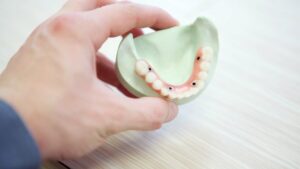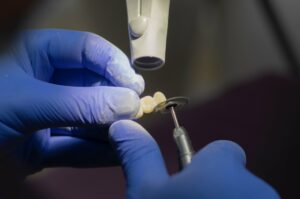What are Dental Caps?
Introduction
When it comes to maintaining a healthy and beautiful smile, dental procedures like dental caps play a crucial role. Dental caps, also known as dental crowns, are prosthetic restorations that encase a damaged or decayed tooth, restoring its shape, size, strength, and appearance. This article explores what dental caps are, their different types, reasons for getting them, the procedure involved, and more.
What are Dental Caps?
Dental caps are tooth-shaped covers that are placed over a damaged tooth to protect it and improve its functionality. They are custom-made to fit perfectly over the tooth and are cemented in place, providing long-term support and protection. Dental caps can be made from various materials, each with its own unique advantages and uses.
Types of Dental Caps
Porcelain Dental Caps
Porcelain dental caps are popular for their natural appearance and ability to blend seamlessly with surrounding teeth. They are an excellent choice for front tooth restoration due to their aesthetic appeal.
Ceramic Dental Caps
Ceramic dental caps share similar characteristics with porcelain caps. They are highly aesthetic and an ideal option for those with metal allergies.
Metal Dental Caps
Metal dental caps, often made from alloys like gold or silver, are exceptionally durable and long-lasting. However, their metallic appearance makes them more suitable for molars and less visible teeth.
Porcelain-fused-to-Metal (PFM) Dental Caps
PFM dental caps combine the strength of metal with the aesthetics of porcelain, making them suitable for both front and back teeth.
Zirconia Dental Caps
Zirconia dental caps offer outstanding strength and are resistant to chipping and cracking. They are an excellent choice for molars and premolars.
Reasons for Getting Dental Caps

Dental caps serve various purposes, including:
- Restoring a severely decayed tooth
- Protecting a weakened tooth from further damage
- Covering a tooth after root canal treatment
- Improving the appearance of a misshapen or discolored tooth
- Supporting dental bridges and dental implants
The Procedure for Getting Dental Caps
Getting dental caps typically involves multiple steps:
Consultation and Examination: The dentist examines the tooth and discusses the treatment plan with the patient.
Tooth Preparation: The damaged tooth is reshaped to create space for the dental cap.
Impression Taking: An impression of the prepared tooth is made to create a custom-made dental cap.
Temporary Cap Placement: While the permanent cap is being fabricated, a temporary cap is placed over the tooth.
Final Cap Placement: The custom-made dental cap is cemented onto the tooth using a dental adhesive.
Caring for Dental Caps
Maintaining proper oral hygiene is essential for the longevity of dental caps. Regular brushing, flossing, and dental check-ups are crucial. Avoid habits like teeth grinding and biting on hard objects to prevent damage.
Dental Caps vs. Dental Crowns

The terms “dental caps” and “dental crowns” are often used interchangeably to refer to the same dental restoration. Both terms essentially mean the same thing and serve the same purposes.
Potential Risks and Complications
Although dental caps are considered safe, some potential risks include allergic reactions to materials, mild sensitivity, or damage to the cap. Dentists carefully assess patients before recommending dental caps to minimize such risks.
Dental Caps for Children
Dental caps can also be used for children to protect their baby teeth from decay or to restore damaged teeth. Pediatric dentists may recommend stainless steel crowns for primary teeth.
Dental Caps Cost and Insurance Coverage
The cost of dental caps varies depending on the material used, the complexity of the procedure, and the dentist’s expertise. Dental insurance may partially cover the cost, but it’s essential to check with the insurance provider for specific coverage details.
How Long Do Dental Caps Last?
The longevity of dental caps depends on factors such as oral hygiene practices, biting forces, and the material used. With proper care, dental caps can last for many years, sometimes even a lifetime.
Conclusion
Dental caps are versatile dental restorations that provide both functional and aesthetic benefits. Whether you need to restore a damaged tooth or enhance your smile’s appearance, dental caps can be an excellent solution. Consult with a qualified dentist to determine the most suitable type of dental cap for your specific needs. Contact Belmont Dental Group today to set up a consultation to discuss if dental caps are the right solution for you.
Frequently Asked Questions (FAQs)
Can anyone get dental caps?
Dental caps are suitable for most individuals, but a dentist will assess your oral health to determine if you are a suitable candidate.
Are dental caps painful?
The procedure is usually performed under local anesthesia, ensuring minimal discomfort during the process.
Will dental caps look natural?
Yes, dental caps are designed to look like natural teeth and blend seamlessly with your smile.
How should I clean my dental caps?
Regular brushing with a soft-bristle toothbrush and flossing are essential for maintaining dental cap hygiene.
Can dental caps be used for cosmetic purposes?
Yes, dental caps can be used to improve the appearance of teeth and create a more appealing smile.

